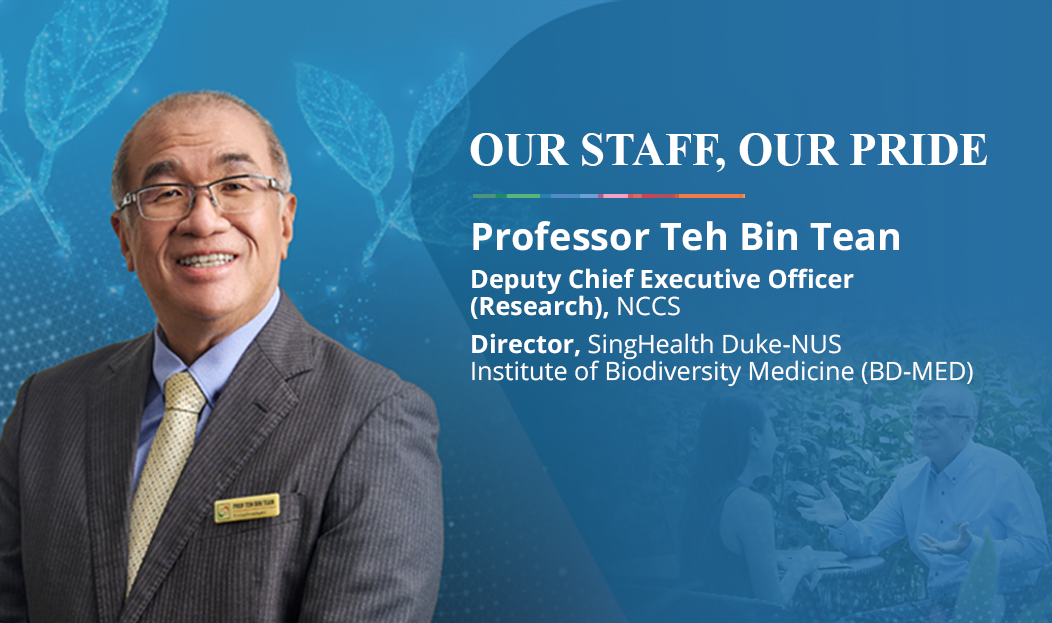Biodiversity has a deep impact on human health and wellness. With more than 4,000 local flora species and cultivars, Singapore’s rich biodiversity makes it an ideal hub for research into biodiversity medicine.
At the SingHealth Duke-NUS BD-MED, we study the genetic make-up, nutritional and medicinal benefits of local and regional plants to understand how to prevent and fight diseases and contribute to environmental and food sustainability.
Promoting human health and wellness with biodiversity medicine
Established with a generous donation from the Verdant Foundation, and backed by partnerships with local and international scientific, innovation and environmental agencies, BD-MED focuses on three specific research programmes: Herbal Biodiversity and Medicine, Food Biodiversity and Nutrition, and Urban Biodiversity and Wellness.
The Herbal Biodiversity and Medicine programme uses new technologies to extract and study plant components that may have the potential to fight common diseases such as diabetes, hypertension and even cancer. For example, Taxol, which comes from the bark of the Pacific Yew, is a well-known cancer drug for breast cancer. We are currently planting Bidens pilosa and Cosmos caudatus (Ulam Raja) to study their anti-diabetic properties, potentially benefitting patients with diabetes.
The Food Biodiversity and Nutrition programme looks into the concept of food as medicine, to manage diseases alongside conventional medical treatment. This programme also studies nutrient-dense and sustainable food alternatives to boost food supply and food security for the future. We have plans to study precision nutrition as well, which involves evaluating one’s DNA, microbiome, and metabolic response to specific foods or dietary patterns to determine the most effective eating plan to prevent or treat diseases.
The Urban Biodiversity and Wellness programme studies the effects of biodiversity on the living environment and its ability to promote wellness, including mental health. By examining the plant components that make up their biology, appearance, colour and smell, we can observe their applications on health. For example, patients suffering from anxiety and insomnia may use essential oils distilled from local plants for symptomatic relief.
Delving deeper into plant genomes
BD-MED will develop about 10,000 square metres of garden space across the SingHealth institutions, including SGH, Sengkang General Hospital, KK Women’s and Children’s Hospital, CGH and NCCS, to grow and study various regional plant species. These spaces will house herbal gardens and aquaponic systems, and will double as green spaces that can bring respite to patients and staff.
At all the gardens, every plant’s genome will be sequenced. Using QR codes, visitors can learn about interesting information on plants such as the durian genome, which comprises approximately 46,000 genes – almost double that of humans. Singapore’s national flower, the Papilionanthe Miss Joaquim (commonly known as the Vanda Miss Joaquim) has around 33,000 genes, and one of the plant’s extracts, Vandaterosides, is known to have biological activities that slow down the skin ageing process....



 By studying the biodiversity of our living environment and its impact on our well-being, we can improve health in Singapore and the region.
By studying the biodiversity of our living environment and its impact on our well-being, we can improve health in Singapore and the region.
